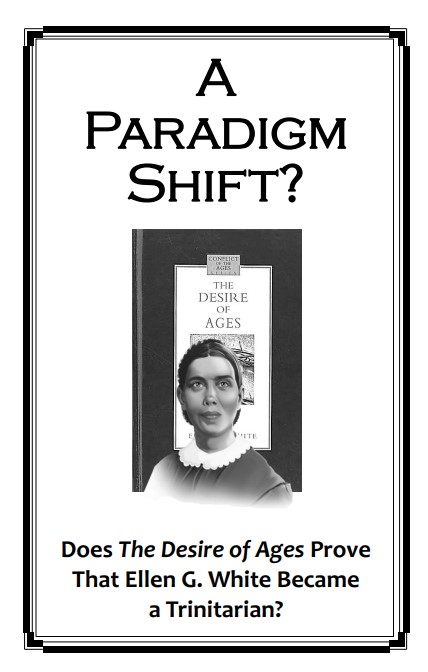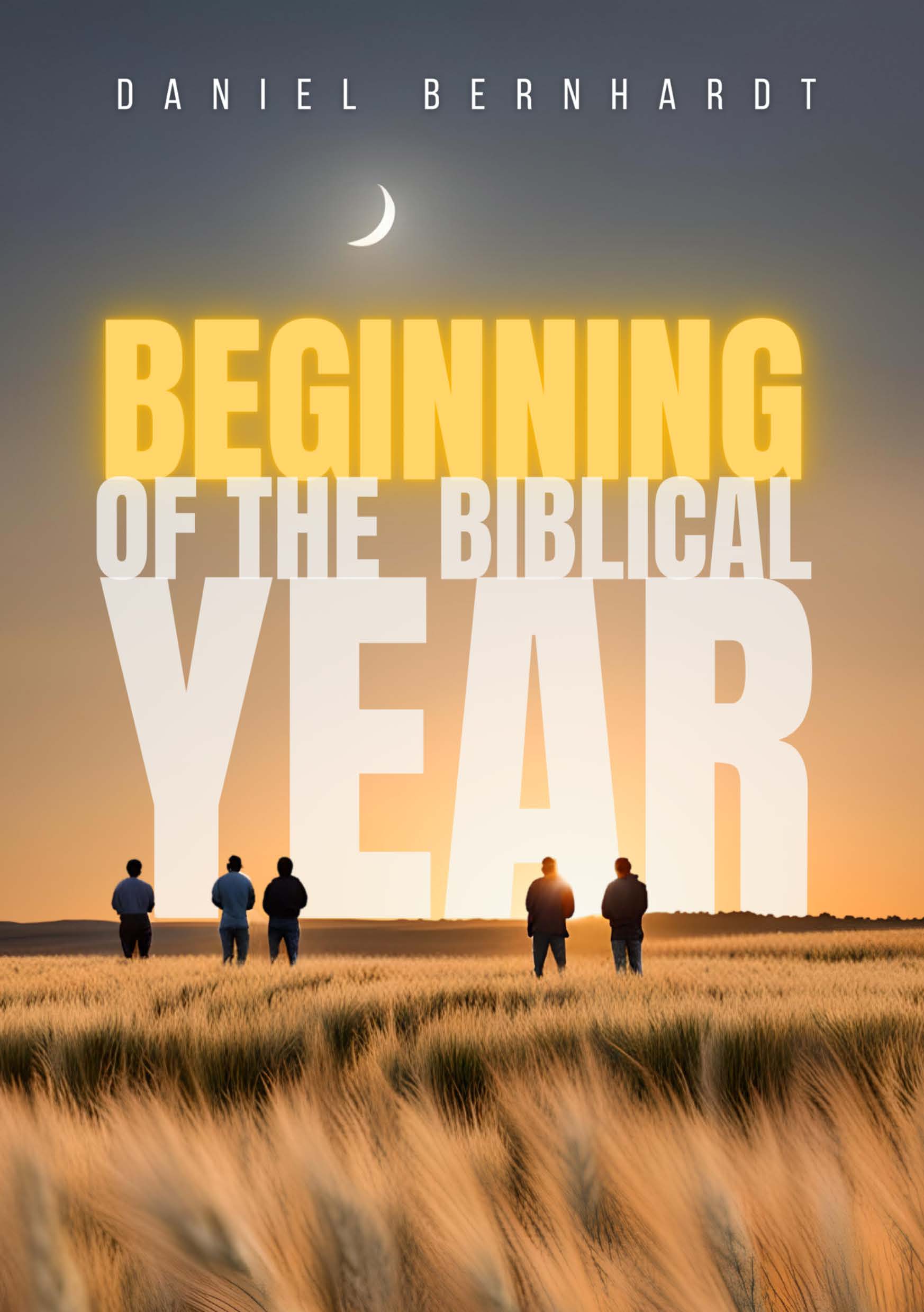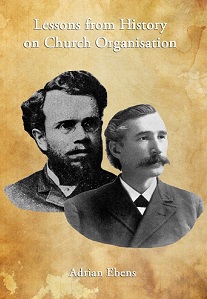Elohim and the plurality of God[s] by William Kinkade (Christian Connection minister).
The following is chapter four from William Kinkade’s book, “The Bible doctrine of God, Jesus Christ, the Holy Spirit…” published in 1829. This book, was not only highly valued, it was probably the most famous work written by a “Christian Connection” minister. Needless to say, this book was widely read among the early SDA’s and quoted in the Review on numerous occasions. It is likely that most, if not all early SDA ministers would have read Kinkade’s book. This is another nail in the coffin for the modern myth: The early SDA’s were “confused” about what version of Trinitarianism they were opposing.
CHAPTER IV. ARGUMENTS IN FAVOR OF A TRINITY EXAMINED
The Trinitarians try to prove the doctrine of trinity From the Hebrew word Elohim, or as it is written without points, Aleim, which is the first word of the Hebrew Bible that is translated God. They think, that as Aleim has a plural termination, there must be a plurality of persons in God. But if we allow this argument, all the weight that Trinitarians append to it, it will by no means prove their system, because it may be the dual number, and of course only refer to the Father and the Son, or if it is plural, it may only mean two; besides let it be what number it may, it proves nothing about equality, nor eternity of persons.
Every scholar knows, and no Christian will deny, that Aleim is a scriptural name of God ; therefore if the word Aleim means a plurality, it must signify a plurality of Gods. If the word man is the right name of one male person of mature age, then the word men, which is the plural of man, must signify a plurality of such person; so if the word Al, in the singular, signifies one self-existent God, then Aleim, which is the plural of Al, must denote a plurality of self-existent Gods, and, for any thing the word Aleim teaches to the contrary, that plurality of Gods may be two, three, or five thousand. But, as no pious Trinitarian will acknowledge that he believes in more than one self-existent God, they certainly must see that the argument proves too much for them, and therefore proves nothing to their purpose.
It is easy to see that this Trinitarian criticism goes as much to support the heathen Polytheism as the Romish trinity, because if there is a plurality of Gods, there may as well be thirty thousand as but three.
If God exists in three persons, and Aleim is the name of those three persons taken collectively, then it cannot be the name of either of them taken separately. Of course the whole triumvirate, or Aleim, did not send their Son to save sinners, it was only the first person of the Aleim, or trinity, that did so; nor did the Aleim. that is the trinity, die for sinners, it was only the second person of the Aleim, or trinity, that did so. If it takes the whole trinity to constitute the supreme God, then Christ, the second person, who died for sinners, must have lacked two thirds of being the supreme God.
In the Hebrew, as well as in all other languages, a King, an Emperor, or any other person of great dignity, is frequently mentioned in the plural number. Thus the King of Spain says, "We, Ferdinand the seventh."— The King of France says, " We, Charles the tenth." The Emperors of Russia say, " We, Alexander," or " We, Nicholas." Artaxerxes, the King of Babylon, speaks of himself in the plural, thus, "The letter which ye sent unto us hath been plainly read before me." Ezra. iv. 18. King Zedekiah speaks of himself in the plural, thus, "As the Lord liveth, that made us this soul, I will not put thee to death." Jer. xxxviii. 16. Christ speaks of himself in the plural, thus, "Verily, verily, I say unto thee, we speak that we do know, and testify that we have seen; and ye receive not our witness. If I have told you earthly things, and ye believe not, how shall ye believe if I tell you of heavenly things'?" I have never heard an advocate of this doctrine affirm that Jesus Christ separately considered, is the whole trinity; but on the contrary, they all assert that he is the second person of the trinity. If, then, Christ can speak of himself in the plural number, and still be one individual person, and not a whole trinity, why may not God the Father speak of himself in the plural, and at the same time be only one single person? In Wilson's Hebrew grammar we have the following rule relative to Hebrew nouns:—" Words that express dominion, dignity, majesty, are commonly put in the plural." Therefore the word Aleim being applied to any being of great dignity, is no proof that such being contains in himself a plurality of persons. The Lord applies this word to Moses, hence he says, " See I have made thee a God [Heb. Aleim] to Pharoah."—Exod. vii. 1. Surely Moses did not consist of three persons. The children of Heth gave the same title to Abraham ; when he applied to them for a burying place, they said, " Thou art a mighty prince among us." Gen. xxiii. 6. In the Hebrew it reads, a mighty Aleim among us: notwithstanding this, Abraham was but one person.
The golden calf that Aaron made is mentioned in the plural number. "And they said these be thy Gods, O Israel, which brought thee up out of the land of Egypt." Exod. xxxii. 4, 8, 31. I now ask, were there three persons in the golden calf?
"Then the Lords of the Philistines gathered them together for to offer a great sacrifice unto Dagon their God, and to rejoice ; for they said, our God hath delivered Samson, our enemy, into our hand. And when the people saw him they praised their God ; for they said our God hath delivered unto our hands our enemy." Judg. xvi. 23, 24. In every place where Dagon is called God in this passage, the Hebrew is Aleim. Although Dagon is called Aleim, there is no probability that his worshippers regarded him as a triune God, or as a being that consisted of three coequal persons.
Because that they have forsaken me, and have worshiped Ashtoreth the goddess of the Zidonians, Chemosh the God of the Moabites, and Milchom the God of the children of Ammon." I King. xi. 33. In each of these places, where God occurs in the English, the Hebrew is Aleim. Although the heathen believed in many Gods, we have no evidence that they thought each of them was three persons. Each of these Gods, that is here called an Aleim, was, no doubt, believed by its worshippers to be a demon, that is, the ghost of one man, or one woman.
In the above text the original is not Aleim, but Ahi, the mem being dropped, because in each place it stands in regimine, or construction, with the following noun, but still it is the same word, and if it was not placed in regimine with the Zidonians, the Moabites, nor the children of Ammon, the Hebrew word would be literally Aleim. Although this is well known to every tyro hebrean, I mention it to take away occasion from them who may desire occasion to cavil.
That the word Aleim does not mean a plurality of persons, is evident from the following text, "Hear, 0 Israel: the Lord our God [Heb. Aleim] is one Lord." Deut. vi. 4. If it is essentially necessary for us to believe that the Lord our Aleim is three persons, why did Moses tell us that he is one Lord? It is worthy of remark, that our Lord quotes this very text, and mentions the word God, by a singular noun in the Greek, thus : "Hear, O Israel: the Lord our God (Gr. Theos) is one Lord." Mark. xii. 29. If the word Aleim had been designed to express a plurality of persons in God, surely Christ would not have translated it by a singular noun. If it is a truth that God was six days making the heavens and the earth, Christ would not translate it three days. If Jonah was in the belly of the fish three days, the blessed Saviour would not say that he was in it but one day. If the word Aleim in the above text had been placed there to teach that there are a trinity of persons in God, Christ, who came to bear witness to the truth, instead of explaining it to the people, has wholly misrepresented it. A Trinitarian minister, if he would undertake to explain the text at all, would tell the people that the word Aleim signifies three persons in the Godhead, coequal, coessential, and coeternal; but Christ says, that Aleim is Theos, God in the singular, that is, "one Lord."
If it be argued that Christ spoke in Hebrew, and therefore did not translate Aleim by Theos; I answer, that his biographer, Mark, who certainly understood the Hebrew language, and his master's meaning, has so rendered the word as quoted by Christ: therefore it remains a fact, that if Aleim implies a plurality of persons in God, Christ has misinterpreted the word, or else Mark has misrepresented his master's speech.
If the word Aleim signifies three coeternal persons, there must be at least six such persons in the Godhead, because in the following passage Christ is called Aleim in contradistinction from another person, who is also called Aleim. "Thy throne, O God [Heb. Aleim] is ever: the sceptre of thy kingdom is a right sceptre. Thou lovest righteousness, and hatest wickedness: therefore God, thy God, [Heb. Aleim, thy Aleim] hath anointed thee with the oil of gladness above thy fellows." Psal. xlv. 6, 7. If the word Aleim signifies a trinity, then in the above text we have one trinity anointing another trinity with the oil of gladness above their fellows, that is, I suppose, above their fellow trinities, because if they are all uncreated persons, it cannot mean above their fellow creatures. But if one of these trinities is anointed above the others, how can they all be equal?
Saint Paul, who was a Hebrew of the Hebrews, an excellent Hebrew and Greek scholar, well acquainted with the Hebrew scriptures, and also divinely inspired, translates the above text into Greek by the singular noun Theos, God. Thus he says, "Thy throne, 0 God, £Gr. Theos] is forever and ever : a sceptre of righteousness is the sceptre of thy kingdom: Thou hast loved righteousness, and hated iniquity ; therefore God, even thy God, [Gr. O 'Theos, O 'Theos sou.] hath anointed thee with the oil of gladness above thy fellows." Heb. i. 8, 9.
If Paul knew that the word Aleim signified a plurality of persons in the Godhead, and that it is essential to our salvation that we believe so, he has handled the word of God deceitfully, and wilfully changed the truth into a lie, he has translated a plural noun, which signifies three, by a singular one, which only signifies one. In addition to the above evidence I would observe, that in the septuagent the Hebrew Aleim is generally translated by the singular noun Theos; and is never, as I know of in that version, translated by any word that implies a plurality of persons. This proves beyond all reasonable contradiction, that the Jews did not think that Aleim represented a plurality of persons in God. If the seventy Jewish interpreters, Saint Paul, Jesus Christ, and his biographer, Saint Mark, all render the word Aleim in the singular, what authority have we to say, that it signifies a plurality of persons in God?
Because the plural pronoun us is three or four times applied to God in the old Testament, some people have concluded that there must be three coequal, _coessential, coeternal persons, in the Godhead: but I think no such conclusion can be fairly drawn from the fact, because he might say us with regard to himself, his son, and the rest of his spiritual family, while, at the same time, they are every one dependant on him.
If a father, who has the whole control of his family and estate, speaking in allusion to his household, should say, "We will pitch our crop," or " We will sell our produce," it would by no means prove that he thinks any members of his family are as great as himself. If a head workman says to his hands, let us do this, or that work, he does not mean by such language, that each of the hands is equal in authority to himself.— Christ called himself and his Father us and we. Praying to his Father for his disciples, he says, "That they may be one in us." And that "They may be one as we are one." If Christ uses plural pronouns with regard to the Father, why may not the Father use them with regard to the Son, and yet at the same time mean to express no equality by the phrase?
When he said, "Let us make man ;" Gen. i. 26, he probably spoke to his Son, because the scripture inform us, that God created all things by Jesus Christ. When he said, "Let us go down and there confound their language ;" Gen. xi. 7, and when he said, "Whom shall I send, and who will go for us." Isai. vi. 8. He probably alluded to his Son and other heavenly messengers, whom he employs to execute his purposes; for at the time he spoke the last of these passages, he was surrounded with the seraphims of glory. And after all I am not certain but that Christ himself made these expressions.
From the evidence I have brought, it is clear that the application of plural pronouns to God was never designed to teach that he consists of three persons.
Here it should be observed, that although there is not one plural pronoun applied to God in the New Testament, and perhaps not more than four in the old; yet he is pointed out in the holy Bible by more than ten thousand singular ones. Therefore if the proof of three persons in God must rest on the numbers of the pronouns that are applied to him in the scripture, the evidence will be against it in a proportion of more than two thousand to one.
If the trinity doctrine is an essential article of the Jewish religion, why is it not mentioned in the old Testament? And why has it happened that not one Jewish writer of any age can be produced, that has advanced or advocated the doctrine? It is certain that many Jewish writings of great antiquity are extant, and it is equally certain that ever since the doctrine of the trinity was invented, its believers have had access to those writings ; and yet, notwithstanding all this, they, as far as I am informed, have never been able to produce one book written by a Jew in favor of the trinity. If the Jews had believed the doctrine, they surely would have taught it in their writings. Ever since the trinity doctrine was generally received among Christians, its advocates have taught it more or less in nearly all their religious books. Is it not reasonable to suppose that if the Jews were Trinitarians, they would have expressed it some where in their writings? The supposition that they would for many centuries be engaged in writing books on religion, and uniformly leave out of all their writings an important doctrine, the belief of which they thought was essential to salvation, defies credulity.
If God is a trinity of three persons, and Jesus Christ is the supreme God, he of course must be three persons. If God the Father exists in a trinity of three persons, and the Son and Holy Spirit are both God in the same sense that the Father is, then each of them must also consist of three persons, and if so, there must be nine persons in the Godhead, because three times three are nine. If to escape the absurdity of nine persons in the Godhead, it be argued that the Son and Holy Spirit are each but one person; I will then ask if God, our heavenly Father, is also but one person? If you answer yes, I shall conclude that you have renounced the doctrine of three persons in God the Father, but if you say the Father consists of three persons, but that the Son and Holy Ghost are each but one person, then you must believe that the Father is three times as great as either of the other two. This destroys the equality of the Father and Son, and runs into the doctrine of five persons in the Godhead, because three in the Father, and one in the Son, and one in the Holy Ghost, make five. If it be argued that either Father, Son, or Holy Ghost, taken separately, is but one person, and that when they are taken collectively they are three persons, then if no one of them consists of three persons, the conclusion is irresistible that neither of them is identically the same with either of the other two, but must all be distinct from each other. If the supreme God consists of three persons, and Jesus Christ is but one person, he is but the third part of the supreme God. The same may be said of the Father and Holy Spirit; if the Almighty God is three persons, and each of them but one person, then each of them is two thirds less than the Almighty God. But if Father, Son, and Holy Ghost, each one separately considered is three persons, then there must be nine persons in the Godhead. Let Trinitarians take hold of which horn of this dilemma they choose, it will oblige them to deny that God is either supreme or infinite, because no being can be supreme who has two equals, nor infinite who consists of either three or nine equal parts.
http://books.google.com/books?id=Ci4-http://books.google.com/books?id=Ci4-AAAAYAAJ&printsec=frontcover&dq=william+kinkade+bible+doctrine&hl=en&ei=u0W9TpylLoLe0QHXuKzPBA&sa=X&oi=book_result&ct=result&resnum=1&ved=0CEYQ6AEwAA#v=snippet&q=elohim&f=false





